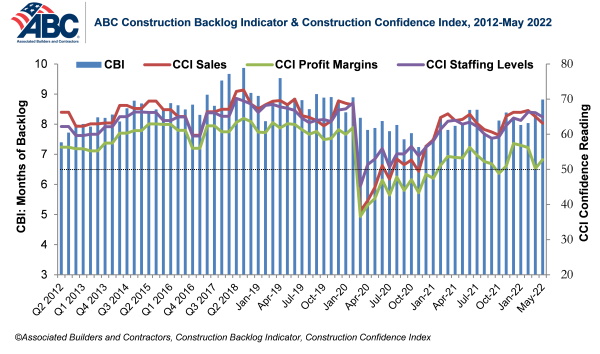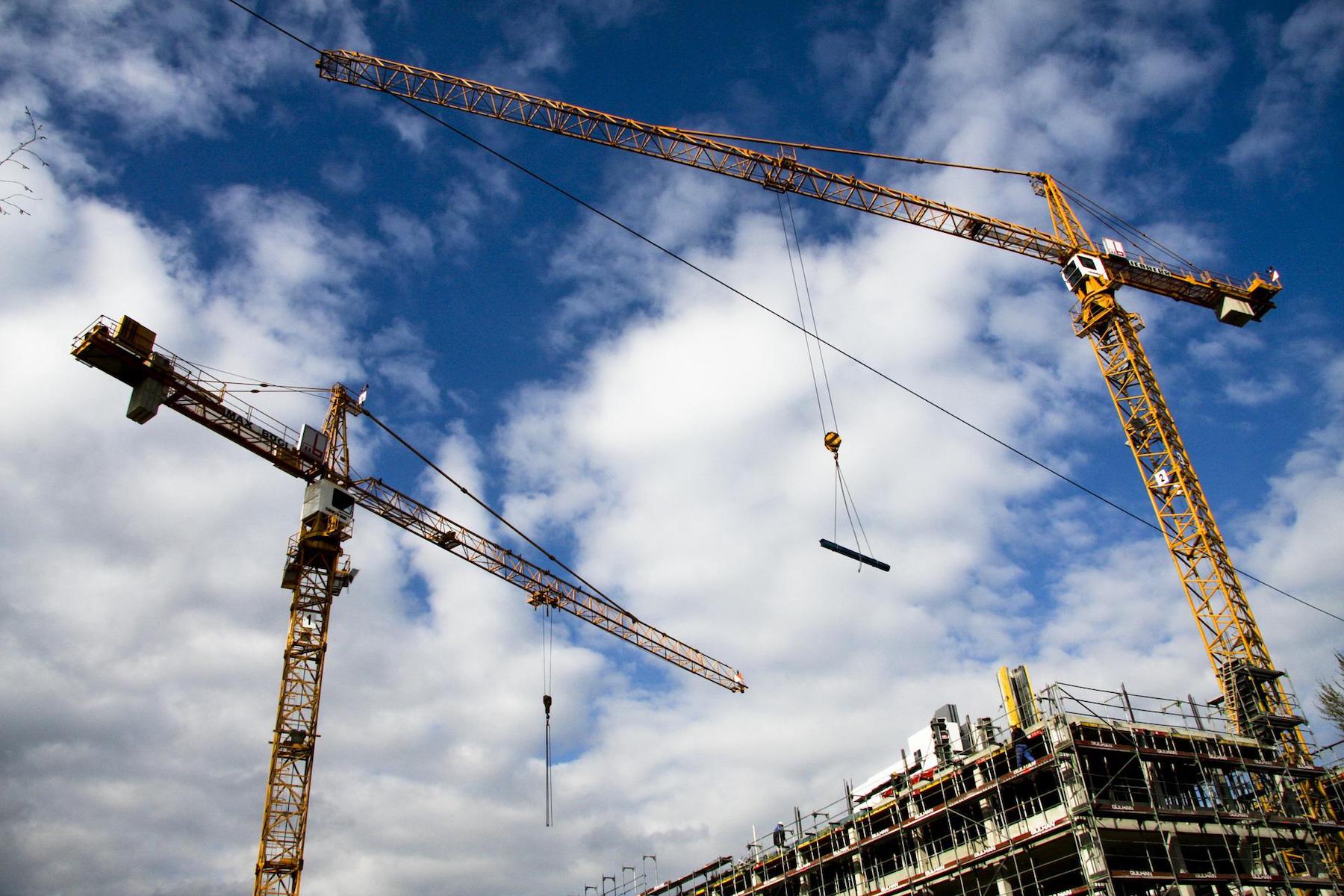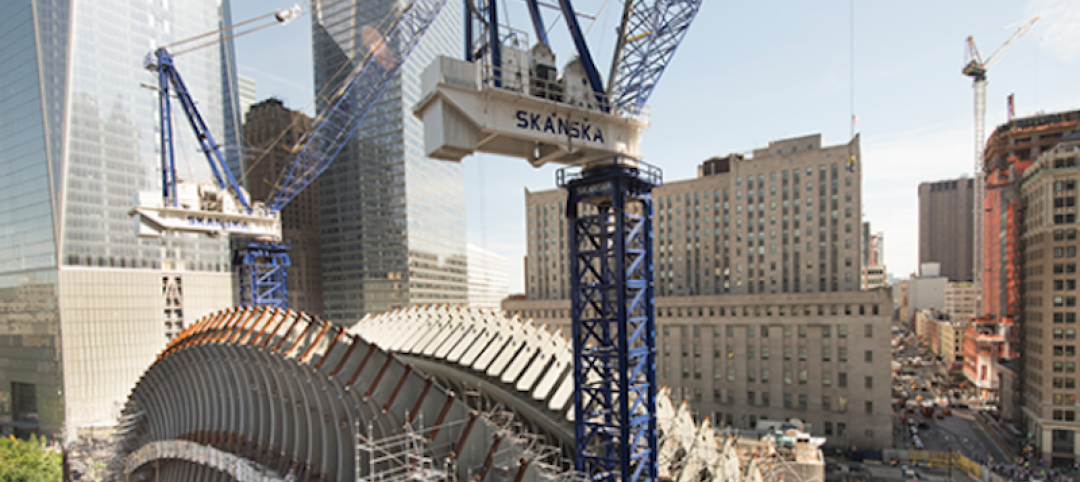Associated Builders and Contractors reports today that its Construction Backlog Indicator increased to nine months in May from 8.8 months in April, according to an ABC member survey conducted May 17 to June 3. The reading is up one month from May 2021.
View ABC’s Construction Backlog Indicator and Construction Confidence Index tables for May 2022.
Backlog in the infrastructure segment jumped from 8.7 months in April to 9.3 months in May, and the Northeast and South regions continue to outperform the Middle States and the West. Contractors with more than $100 million in annual revenues enjoyed the highest backlog, at 13.2 months.
ABC’s Construction Confidence Index readings for sales, profit margins and staffing levels declined in May. The indices for sales and staffing remain above the threshold of 50, indicating expectations of growth over the next six months, while the reading for profit margins was exactly 50 for the month.
“It is simply remarkable that contractors continue to add to backlog amidst global strife, rising materials prices and ubiquitous labor force challenges,” said ABC Chief Economist Anirban Basu. “Backlog is up in every segment over the past year, including in the somewhat shaky commercial category. The largest increase in backlog has been registered in the industrial segment. More American companies are committing to place additional supply chain capacity in the United States, with Intel and Ford representing particularly recent and noteworthy examples.
“For contractors, the challenge will continue to be the cost of delivering construction services,” said Basu. “The risk of severe increases in costs and substantial delays in delivery remains elevated given the volatility in input prices, the propensity of the labor force to shift jobs in large numbers and equipment shortages and delays. This ABC survey indicates that the proportion of contractors who expect that profit margins will expand over the next six months is declining, a reflection of lingering, worsening supply chain challenges.”

Note: The reference months for the Construction Backlog Indicator and Construction Confidence Index data series were revised on May 12, 2020, to better reflect the survey period. CBI quantifies the previous month’s work under contract based on the latest financials available, while CCI measures contractors’ outlook for the next six months.
Related Stories
Building Team | Jul 30, 2018
Construction tech is the new investment darling for VC funds
In the first half of 2018, venture capital firms invested $1.05 billion in global construction tech startups, setting a record high.
Building Team | Jun 22, 2018
What owners should know before choosing the design-build project delivery method
Outside of drawing up a well-written contract, owners often overlook a key attribute that can significantly impact the success of a design-build project, writes Skanska’s Julie Hyson.
Building Team | Jun 13, 2018
How your AEC firm's brand affects recruiting top talent
There is a major shift in workforce demographics as upwards of 80 million baby boomers retire over the next fifteen years.
Sponsored | | May 24, 2018
Water treatment facility renovation benefits from laser scanning technology
Sponsored | Building Team | May 8, 2018
5 tips to improve employee utilization (and morale)
Ways to increase productivity and revenue, while providing a supportive workplace environment
Architects | Apr 5, 2018
Tech Report 5.0: The Human Touch
Can studying humans at a behavioral level produce better buildings? Cognitive architecture experts are working to find out.
Sponsored | Building Team | Mar 28, 2018
6 strategies to keep your project on budget
Here are six strategies to keep your projects on or even under budget.
Sponsored | | Mar 14, 2018
Getting there may be costing you more
Commercial transportation is getting more expensive, and it’s driving up the price of steel.
Sponsored | Building Team | Dec 12, 2017
3 tips to address the top causes of budget overruns
The most cited issues are communication breakdowns, inadequate fees for the work provided, and unrealistic deadlines or schedules.















